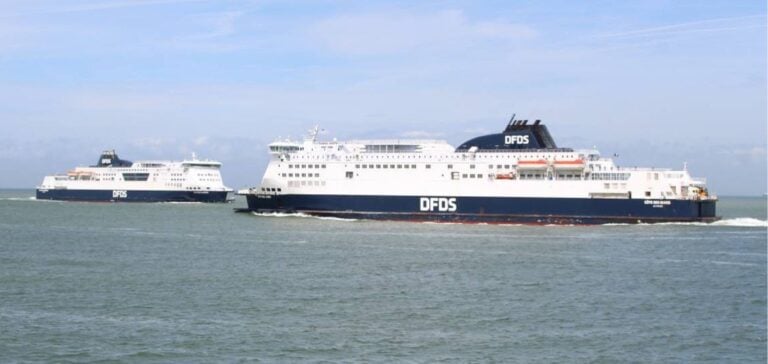DFDS, a major player in the maritime transport sector, is committed to a green transition by investing a billion euros in the acquisition of six electric ships. These ships, destined for the Dunkirk-Dover and Calais-Dover routes, are scheduled to enter service gradually, with the first two ships operational by 2030 and the remaining four by 2035. This initiative marks a step towards decarbonizing shipping in the English Channel, one of the world’s busiest shipping corridors.
Ecological and economic benefits
Switching to electric ferries for short distances between the UK and France offers a number of ecological advantages. Electric ships significantly reduce CO2 emissions, helping DFDS and the port authorities of Dover, Boulogne-Calais and Dunkirk to meet their climate objectives. Torben Carlsen, CEO of DFDS, emphasizes that this investment accelerates the transition to a greener future for the marine industry, while maintaining high standards of safety and performance through advancedbattery and ship design technologies.
Collaboration and infrastructure
The success of this project is based on close collaboration with experts in battery technology, ship design and energy efficiency. DFDS also works closely with national authorities, infrastructure partners and energy suppliers to secure the energy supply and infrastructure needed for electric ships. Intensified dialogues between DFDS and the French authorities, as well as the French government’s plan for energy transition, play a role in this initiative.
DFDS sustainable development strategy
In 2023, DFDS launched its new “Moving Together Towards 2030” strategy, confirming its ambition to become a net zero company by 2050. The aim is to have six green ferries in service by the end of 2030, including two electric ships for the Channel. In France, DFDS operates five vessels under the French flag and employs 1,200 people, including 800 French sailors.
Challenges and opportunities
The transition to electric ships poses a number of challenges, including access to an adequate power supply and the provision of recharging infrastructure in ports. However, this transition also offers opportunities to enhance the sustainability of shipping, reduce dependence on fossil fuels and improve air quality in coastal regions. This pioneering project illustrates the marine industry’s ability to move towards greener solutions and make a significant contribution to the fight against climate change.






















